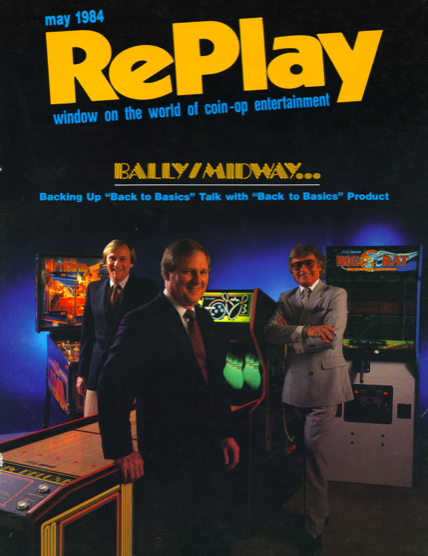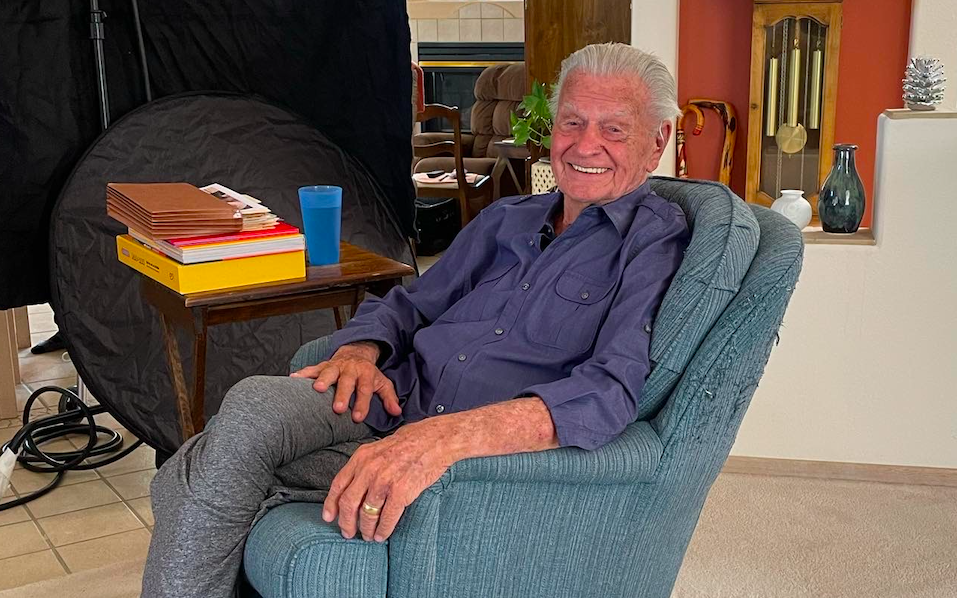Stan Jarocki, whose industry career included senior positions at Seeburg, Midway Manufacturing and American Laser Games, passed away peacefully at his home in Albuquerque, New Mexico on May 14 at the age of 94. He is survived by his wife of 72 years, Diane, five children, nine grandchildren and nine great-grandchildren.

While Pac-Man's creator is Toshi Iwatani and Pac-Man's father is the late Namco Chairman Masaya Nakamura, Jarocki himself has been dubbed “Mr. Pac-Man.” As an example, independent game researcher Ethan Johnson wrote in X of Jarocki, “Mr. Pac-Man himself. No one has ever been a greater champion of the legendary game in America than Jarocki. His prowess as a salesman has made him the pinnacle of legendary product pushers of the arcade video game era.”
His son Jim said, “There is much to say about him, a hero to me and a great mentor and friend, but I think his friends in the business world, and even those who never met him, would love to know a little bit about what he accomplished. He truly loved business and the people in it.”
He was born in Chicago on July 13, 1929, and graduated from Tooley High School. His father, Stanley Sr., was a tool manufacturer for Seeburg Co. and gave him his first job cleaning loading docks at a coin-operated warehouse.
He was drafted into the Army in 1951 and served with distinction as a combat infantryman in the Korean War, attaining the rank of staff sergeant.
Upon his return in 1953, Stan returned to Seeburg and continued his 50-year career in the coin-operated gaming industry. At the time, Seeburg was a pioneer in the jukebox industry, introducing the first commercial jukebox (in 1951) that could play New 45 RPM records. Company executives recognized Stan's abilities and moved him to a sales promotion position while he continued studying marketing at Northwestern University.
Jim said, “He pioneered many things in the commercial and home entertainment arena, including the national promotion of Seeburg's Discotheque program in 1965. He was also instrumental in the Mini LP project, Seeburg background music equipment and home entertainment products. Stan continued to rise within the company, rising to vice president of sales and marketing, and developed lifelong relationships with distributors and operators around the world.”
Stan moved into the new video game industry in the late 1970s at Elektra Games in Elk Grove Village, Illinois, where he helped develop one of his favorite games, Flying Fortress, before joining Midway Manufacturing, known for bringing Taito's Space Invaders and Namco's Galaxian to the US at a time when no major Japanese game companies had their own offices or factories in the US.
Stan, who is in charge of developing and licensing new concepts, discovered a Namco game known in Japan as Paku-Man. Stan realized that Paku-Man was truly different. He states, “It's a maze game that's non-violent and easy for anyone to play, but challenging for advanced players. I knew this concept would bring women, older people, and patrons who aren't as interested in arcade games into the coin-op world. It's a real expansion of the player base.”

Pakuman (or “Puck-Man” as it was briefly called) was tweaked for the US market and became Pac-Man. Then, of course, there was Ms. Pac-Man. Jim writes: “These were the most successful arcade games of all time, with factory production rates in 1983 exceeding 1,200 units per day and over 250,000 cabinets produced.
“Stan appeared on the popular Phil Donahue Show and was interviewed by media outlets around the world, including Time magazine, during Pac-Man's heyday,” Jim continued. “In addition, he licensed the Pac-Man character to hundreds of consumer products, from lunch boxes to bicycles, a Hanna-Barbera animated series and even a gold record song, 'Pac-Man Fever.' It really was the coin-operated gaming industry's first foray into the consumer world.”
Two of his children also fell in love with the amusement games business: his daughter Susan Giarocchi Barone (Stan named the “Sue” ghost in Ms. Pac-Man for her) followed Stan into the industry, especially at SNK, while Jim worked with Stan at Bally/Midway (and later at American Laser Games).
“In 1984 there was a recession and downsizing at Midway,” Jim says, “and my father was the first to call me in to be fired. He wanted to show that there was no favoritism during those tough times. I think that was typical of my father's integrity.”
Stan retired in 1991 and settled in Albuquerque, but soon returned when he was asked to become VP of Sales and Marketing for American Laser Games, which rolled out big screen live action video games such as Mad Dog McCree and Drug Wars to locations around the world. His creativity led to another ALG hit, Fast Draw Showdown.
After his second retirement, Jim said, Stan tried bull riding, studied silversmithing and made custom jewelry. Stan served as president of the local Korean War Veterans Association, hosted many dignitaries as a keynote speaker for the Korean American Memorial Group and was appointed an Ambassador of Peace by the Secretary of Patriots and Veterans Affairs of the Republic of Korea.
He continued to seek out interviews about the industry, which resulted in the publication of a book called “Pac-Man: Birth of an Icon,” and more recently told his story in April for a network series about his experiences in the coin-op industry.


